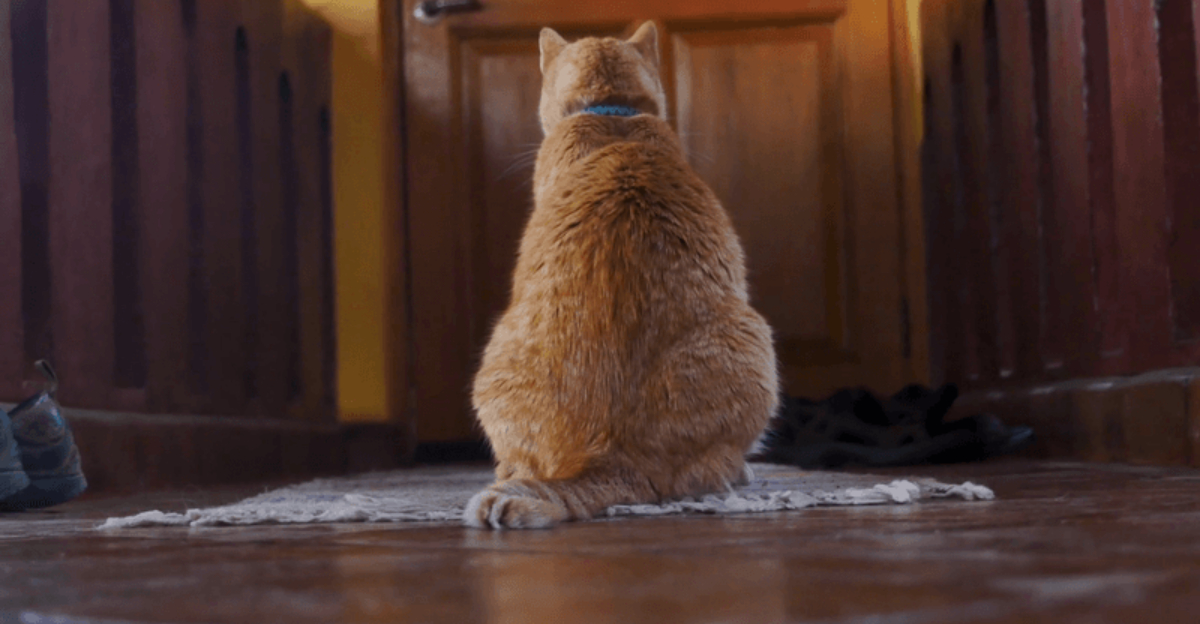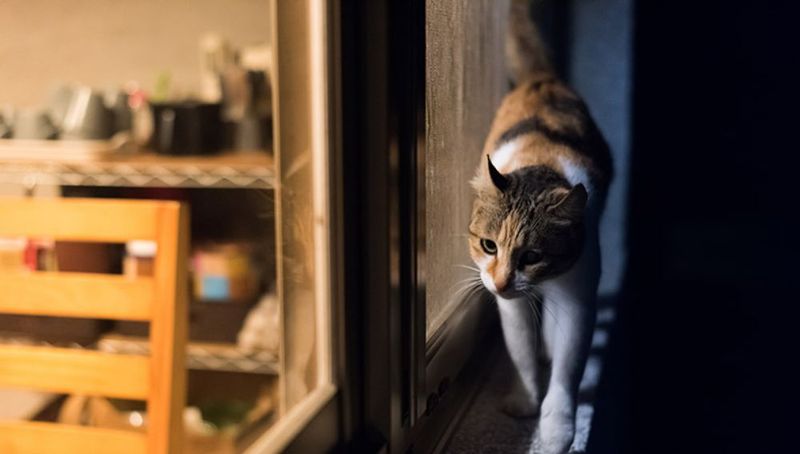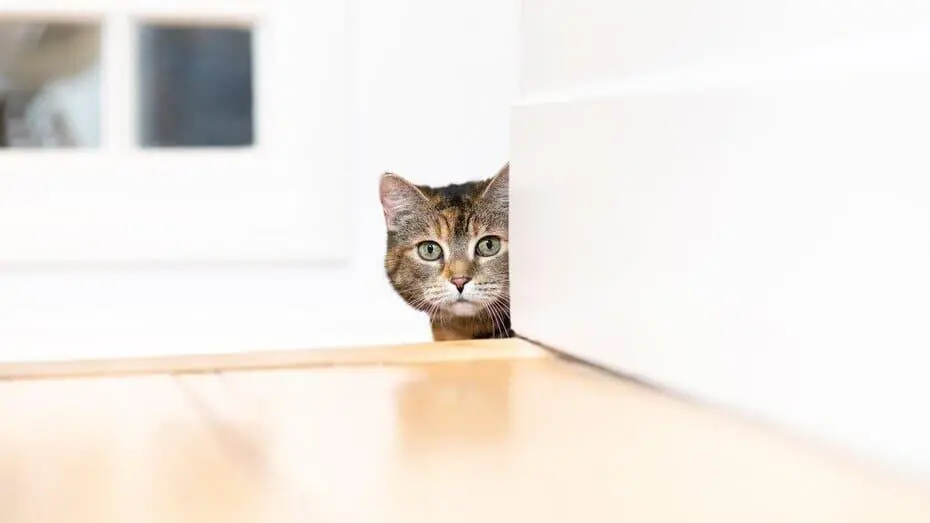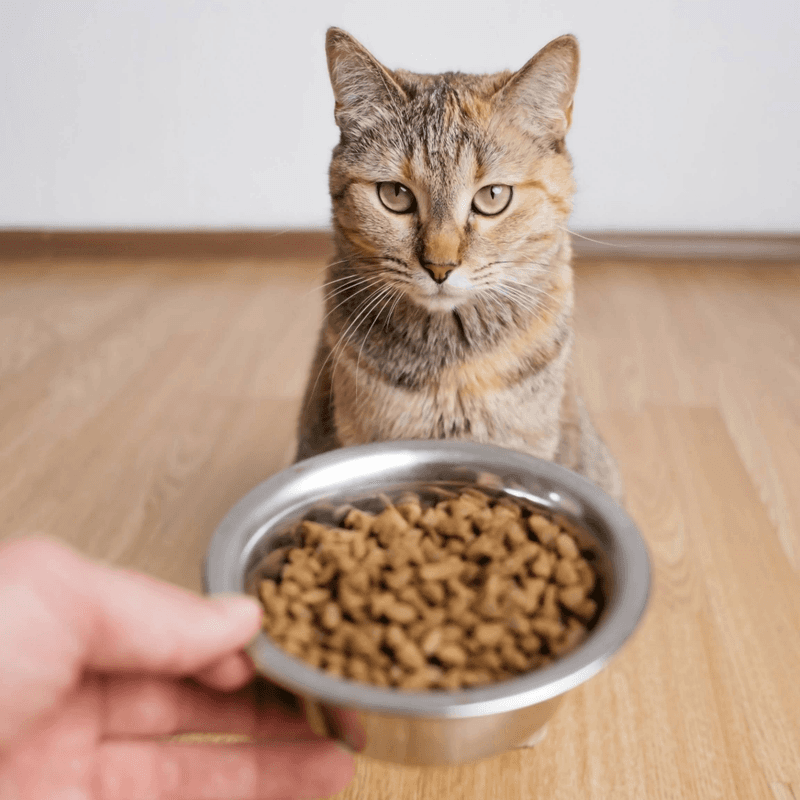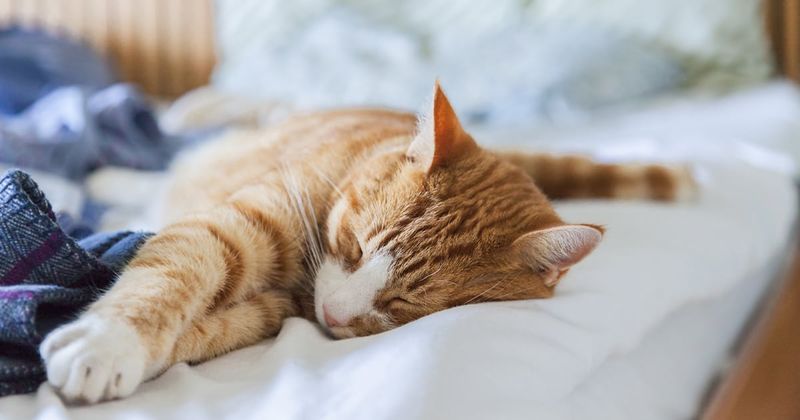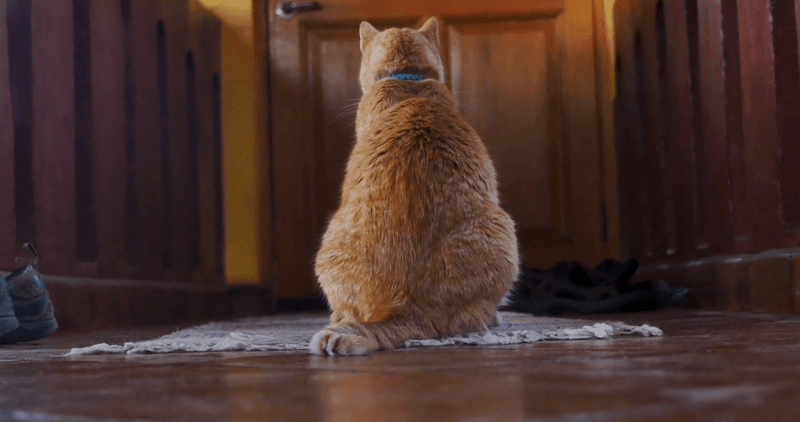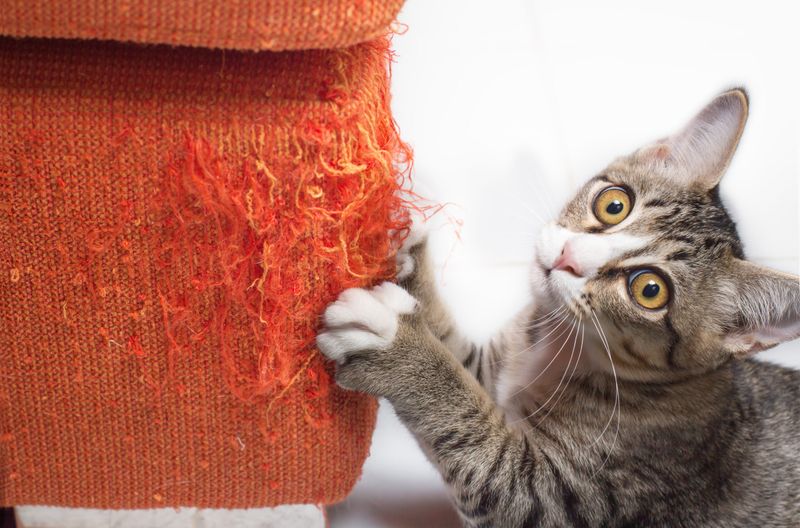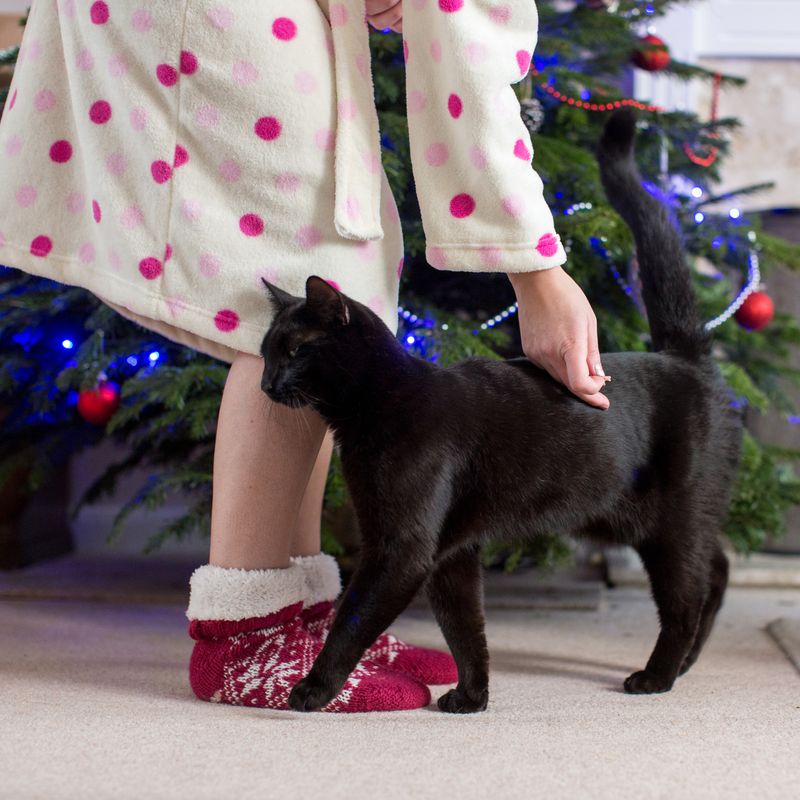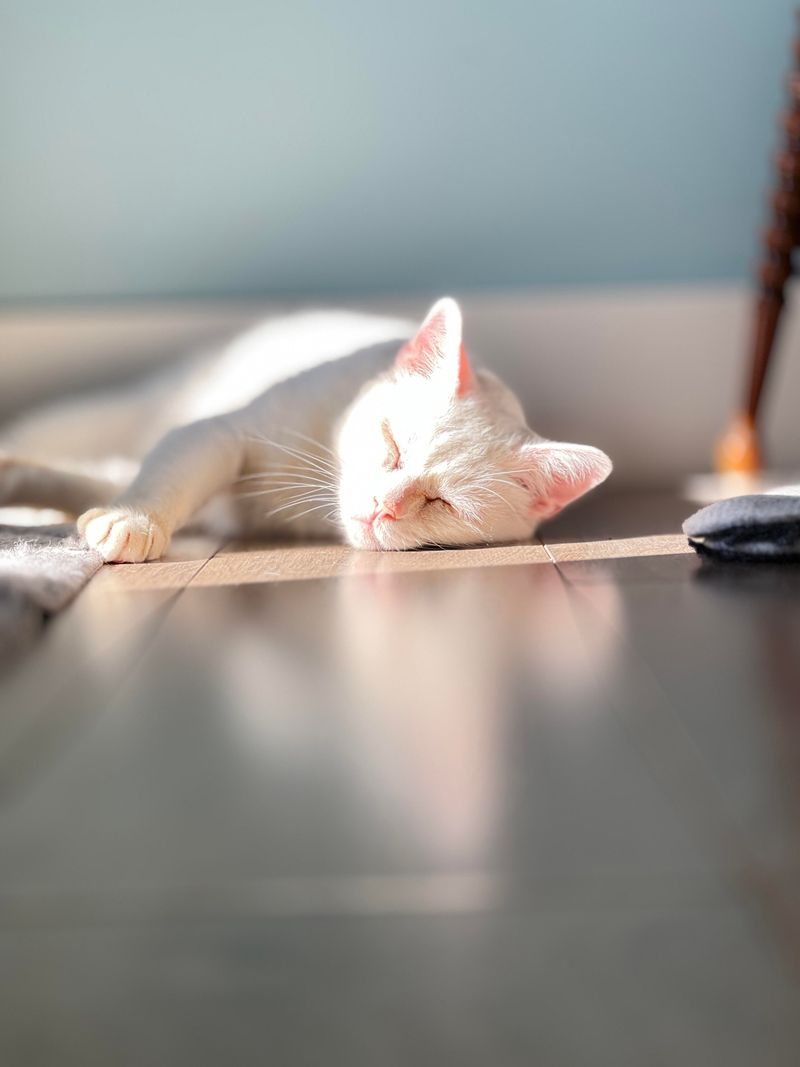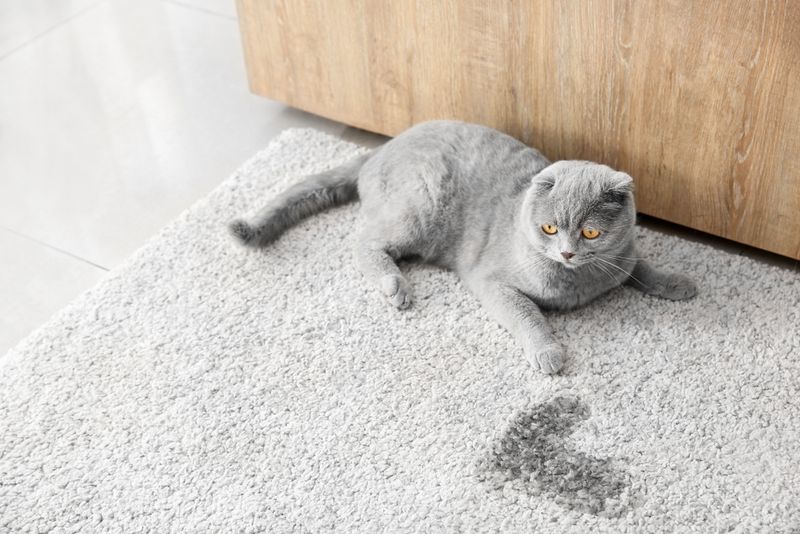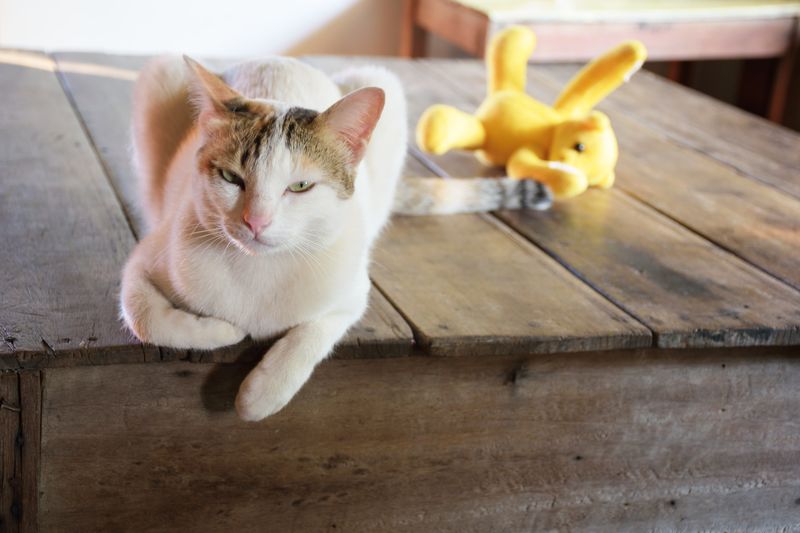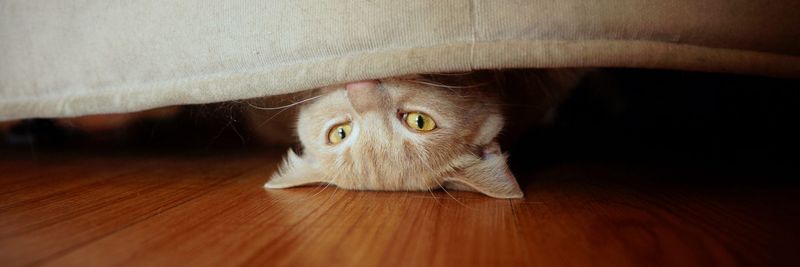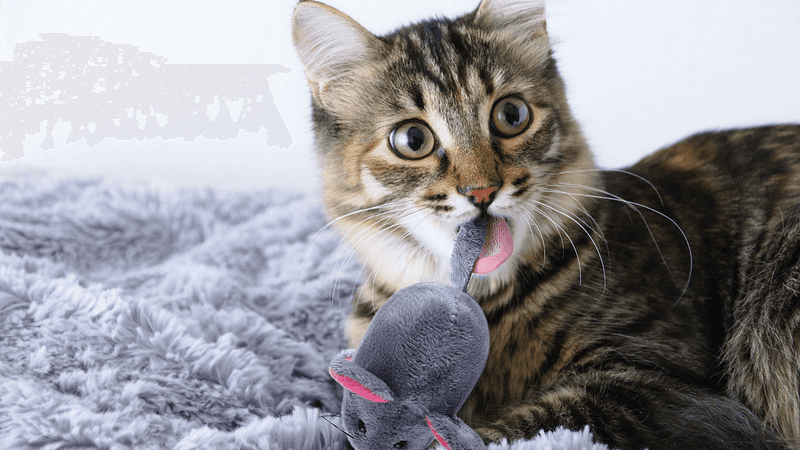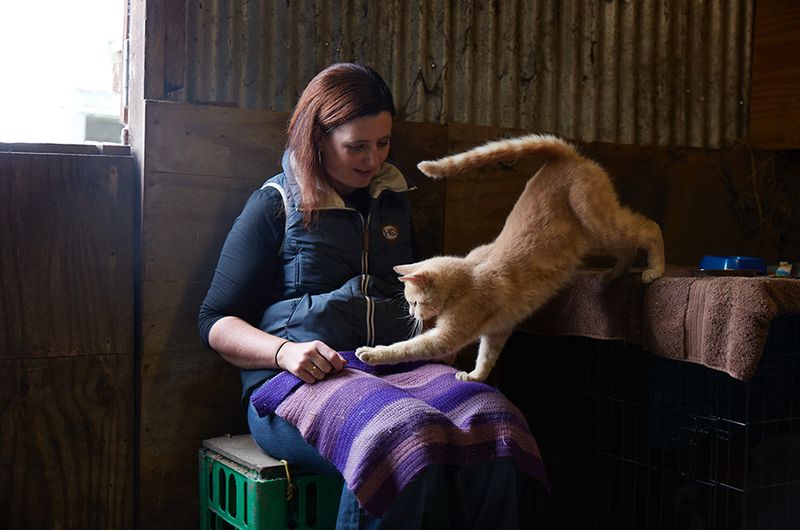📖 Table of Content:
- 1. Increased Vocalization
- 2. Following You Around
- 3. Changes in Eating Habits
- 4. Sleeping in Your Spot
- 5. Waiting by the Door or Window
- 6. Destructive Behavior
- 7. Excessive Grooming or Lack of Grooming
- 8. Clinginess When You Return
- 9. Increased Sleep or Lethargy
- 10. Using the Litter Box Inappropriately
- 11. Loss of Interest in Play
- 12. Hiding More Often
- 13. Bringing You “Gifts”
- 14. Greeting You Enthusiastically
Despite their stoic expressions and dignified mannerisms, many cats feel the absence of their favorite person quite profoundly. From subtle shifts in behavior to outright displays of affection or anxiety, your feline friend might be trying to tell you they miss you more than you think.
Separation anxiety in cats is often misunderstood or overlooked because their signs of distress are less vocal or dramatic than those of dogs. But just because your cat isn’t howling at the door doesn’t mean they aren’t experiencing discomfort. In fact, many cat owners only notice something is off once the behaviors become persistent or disruptive, and even then, it’s easy to mistake these actions for mischief rather than emotional need.
Recognizing the ways your cat may be expressing longing or loneliness can help strengthen your bond and improve their well-being. Whether it’s a change in appetite, unusual grooming habits, or suddenly clinging to your side, these signals are your cat’s way of reaching out. The better you understand their cues, the more responsive you can be in nurturing their emotional health. Below are fourteen telltale signs your cat misses you when you’re gone, and what each one might mean for your unique relationship.
1. Increased Vocalization
A noticeable uptick in your cat’s vocal activity when you’re away or as you return might indicate they’ve missed your presence. Some cats develop specific meows or chirps that they reserve only for their owners, a sort of emotional dialogue. This behavior is often heightened by changes in routine, such as a sudden extended absence. When you hear more persistent or louder meows, your cat may be trying to convey confusion, stress, or a call for comfort. Not all vocalizations are created equal; some might be soft and mournful, while others are sharp and demanding. These vocal cues are essentially your cat’s way of processing your absence. Paying attention to the tone and frequency of their sounds can help you decode their emotional state.
2. Following You Around
Tailgating you from room to room is your cat’s way of making up for lost time and reinforcing the bond. This behavior often becomes more intense after you’ve been away, as your cat wants constant proximity to feel secure again. Whether you’re folding laundry or brushing your teeth, having your feline at your heels shows a desire to reconnect. In these moments, they’re not just curious about what you’re doing; they’re craving reassurance and closeness. This trailing behavior can continue for hours or even days as they recalibrate emotionally. It’s also a sign of trust—your cat chooses to be near you, even when they don’t require anything in particular. Their quiet companionship is both a comfort to them and a subtle request for the same in return.
3. Changes in Eating Habits
Alterations in your cat’s appetite can be a red flag when it comes to emotional health. A cat that normally devours its meals but suddenly picks at food when you’re away might be feeling low. Conversely, some cats may stress-eat in your absence, grazing more frequently to self-soothe. Because cats are highly sensitive to environmental and emotional shifts, mealtime behavior often mirrors their state of mind. You may not always witness these changes immediately, but tracking their intake while you’re gone can reveal a lot. It’s important not to dismiss these shifts as finickiness without considering emotional causes. Appetite fluctuations can be one of the quietest yet clearest signs that your cat is affected by your absence.
4. Sleeping in Your Spot
Choosing to curl up in your bed, on your clothes, or even atop your shoes is more than a quirk—it’s a coping mechanism. Your scent provides comfort, grounding your cat when they feel emotionally adrift. When you’re gone, your belongings become surrogates for your presence. Cats have an incredibly sharp sense of smell, and they associate your scent with safety and affection. By nesting in your personal spaces, they are seeking a form of contact, even if you’re not physically there. It’s a tender gesture that shows how deeply attached they are to you. In many ways, your scent becomes their emotional anchor during your absence.
5. Waiting by the Door or Window
Perching at the window or camping by the front door is more than just a pastime for cats—it’s often a hopeful gesture. These are vantage points where your cat might expect to catch a glimpse of you returning home. As creatures of habit, cats can learn the general rhythm of your comings and goings. If you frequently catch them staring out the same spot around your usual return time, it could indicate anticipation. This behavior can also be reinforced by sound; the jingle of your keys or the engine of your car might cue their excitement. When cats exhibit this type of waiting behavior, it reflects their awareness of your importance in their world. In essence, they are patiently counting the moments until they’re whole again.
6. Destructive Behavior
When cats feel anxious or frustrated, they might redirect that energy into clawing furniture or knocking objects from shelves. Though it might appear as rebelliousness, destructive behavior is often a manifestation of emotional distress. Being alone disrupts their sense of routine and stability, and acting out provides a temporary outlet. Scratching, biting, or displacing things isn’t necessarily about defiance; it’s a way to self-regulate. They may target areas that are associated with you—your favorite chair or workspace—as a way of reconnecting. It’s important to understand that punishing such behavior can worsen the problem. Instead, addressing the underlying emotional cause is often the most effective solution.
7. Excessive Grooming or Lack of Grooming
Some cats respond to stress with compulsive grooming, while others stop altogether, and both are concerning. When a cat over-grooms, they might create bald spots or irritated skin, signaling anxiety. On the other hand, neglecting their coat results in matting or dullness, revealing depression or emotional withdrawal. Grooming is a deeply ingrained behavior that reflects a cat’s sense of well-being. Any shift in this habit is worth noting, especially in correlation with your absence. These changes often go unnoticed until they become extreme, so observation is key. Helping your cat maintain regular routines and offering affection upon return can ease their stress.
8. Clinginess When You Return
A cat that won’t leave your side after you come home is making it clear how much they missed you. They might rub against your legs incessantly, climb onto your lap, or even meow non-stop for attention. This behavior reflects a need for reassurance and reconnection after time apart. They’re not being needy—they’re expressing vulnerability in the only way they know how. The longer the separation, the more intense this behavior can become. Giving them undivided attention during this reunion period can help rebuild their emotional equilibrium. These moments, though clingy, are often some of the most heartfelt demonstrations of love.
9. Increased Sleep or Lethargy
While cats naturally sleep a lot, excessive sleepiness or listlessness may indicate sadness or lack of stimulation. Without their human companion, a cat might retreat further into sleep as a way to pass time or cope with loneliness. This isn’t the healthy, contented sleep of a relaxed cat—it’s often deeper, more withdrawn. You might notice fewer moments of play or interaction during this time. This kind of lethargy can sometimes be mistaken for a medical issue, so it’s important to consider emotional factors too. Rest becomes a shield against boredom or emotional discomfort. Offering mental stimulation during your absence can help mitigate this.
10. Using the Litter Box Inappropriately
Urinating outside the litter box is one of the more distressing and misunderstood behaviors cats exhibit when stressed. While many owners jump to the conclusion of defiance, it’s more often a sign of emotional unease. Your absence can unsettle their territory, prompting them to mark with scent. This action isn’t spiteful—it’s a cry for reassurance and familiarity. Sometimes they choose places with your scent to reinforce that connection. It’s crucial to rule out medical causes, but if health is not the issue, emotional stress may be the culprit. Being mindful of changes in their environment and routine can reduce the likelihood of this behavior.
11. Loss of Interest in Play
A normally playful cat that loses interest in toys or games could be signaling emotional fatigue. Play is a healthy outlet for both physical energy and mental engagement, so its absence is significant. When you’re not around, your cat may feel uninspired to engage in solo activity. Even toys they previously loved might gather dust during your absence. This can be particularly noticeable in cats who enjoy interactive play with their humans. Reintroducing play slowly upon your return can help them reawaken their interest. Encouraging movement and stimulation helps restore their sense of joy and connection.
12. Hiding More Often
Retreating under the bed, behind furniture, or into secluded corners can be a self-soothing tactic in times of stress. Cats naturally seek solitude when they’re overwhelmed, and your absence can trigger that need. Hiding allows them to feel protected, but extended periods can indicate emotional withdrawal. Some cats will avoid eye contact or physical touch during this time, needing to regulate on their own terms. If you notice this pattern emerging only during or after your time away, emotional distress may be the cause. Creating a calm, safe environment can help coax them back out. Patience is key when encouraging them to re-engage.
13. Bringing You “Gifts”
Whether it’s a toy mouse or an unfortunate insect, the arrival of little “presents” is often your cat’s way of reconnecting. This behavior may seem odd, but it’s rooted in their instinct to share resources with those they value. These offerings may increase when you’ve been gone, reflecting a desire to demonstrate affection or provide for you. Cats sometimes place these gifts in your shoes, bed, or other personal spaces. It’s not only a practical act but a symbolic one—your cat is saying “I thought of you.” While not always pleasant, it’s an unmistakable sign of attachment. Acknowledging the gesture, even if discreetly, reinforces your bond.
14. Greeting You Enthusiastically
A cat that runs to the door, tail high and purring loudly, is clearly overjoyed by your return. This is one of the most obvious and heartwarming signs that they missed you. Their excitement may include head bumps, happy chirps, or rolling over for belly exposure. These greetings are not random—they’re reserved for those they trust deeply. This welcoming committee might follow you for several minutes as they “reclaim” your attention. These rituals become even more pronounced the longer you’ve been away. Being met with such enthusiasm reveals the depth of your cat’s emotional attachment.
